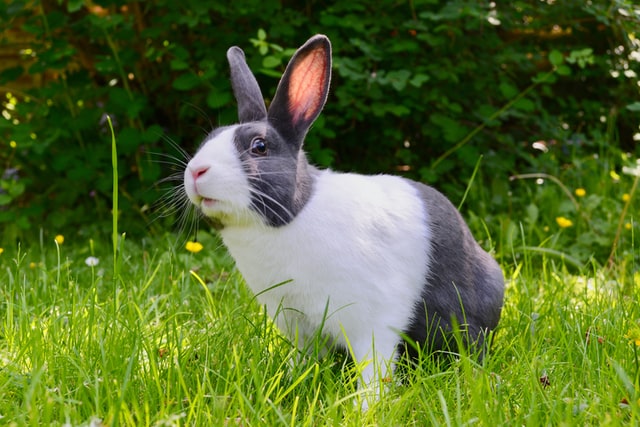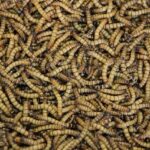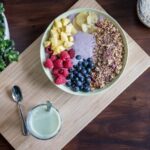When asked “is rabbit healthy to eat?”, the answer is a resounding “yes.” A rabbit patty is about four grams of fat per ounce, and its diet consists of grass hay, fresh vegetables, and lean meat. In fact, the meat contains more than twice as much fat as a chicken patty. Despite this, the fat content of rabbit is actually quite low compared to other animal proteins.
Grass hay
There are many benefits to switching your rabbit’s diet from hay to grass. Although it is safe for rabbits to eat grass, the cellular structure of hay is not the same as the one of fresh grass. Therefore, it may take your pet some time to adjust to eating grass. This change is best done in stages, as your rabbit may prefer one type of hay to another. To ensure that your rabbit has a balanced diet, try to mix hay and grass.
In addition to being good for rabbits, hay is also good for rabbit teeth. The incisors (teeth) in a rabbit’s mouth are open rooted and grow continuously throughout their lives. Grass hay contains the right ratio of amino acids and fiber for the teeth of a rabbit. Grass hay contains about 12% protein and less than 2% fat. It also contains 14-16% fibre which your rabbit’s teeth need for healthy growth.
Timothy hay is the most common type of hay. It is available in the first, second, and third cuttings, depending on the growing season. Timothy hay has high seed heads and is high in fiber. It is harvested about late summer. Compared to other types of hay, Timothy hay contains higher levels of fats and protein. It is better for rabbits to eat a blend of both types of hay.
Kale
The nutritional content of kale is high enough to make it an ideal diet choice for your rabbit. It is a rich source of calcium and magnesium. It also contains a moderate amount of iron, which helps carry oxygen throughout the body and produce enzymes. Although kale is a vegetable, it should be offered to your rabbit in moderation. For maximum health benefits, however, it should be avoided for young rabbits.
Though kale is not toxic to rabbits, it should be fed in moderation. The reason for this is that rabbits’ digestive systems are sensitive. Introducing a new food such as kale to your rabbit can lead to stomach upsets. When introducing a new food, begin by giving them a small amount of it and observe how their bodies respond. Do not overfeed kale to avoid causing an upset stomach. Similarly, too much kale consumption could lead to urinary stones, kidney stones, and bladder sludge.
While kale is not a complete diet for rabbits, it is a valuable source of vitamins A, C, and magnesium. In addition to its benefits for humans, kale is also a good source of fiber. Unlike other vegetables, kale is low in fat, which makes it a great diet choice for rabbits. Additionally, it contains vitamin A, C, and K. Additionally, kale is rich in magnesium, iron, potassium, and manganese. Besides being highly nutritious, kale can influence rabbit digestion positively.
Fresh vegetables
While you may not be able to feed your pet a whole rainbow of fruits and vegetables, there are still many things that your rabbit can benefit from. For example, carrots, celery, cucumber, brussel sprouts, and broccoli are nutritious options for your pet. However, remember that some of these fruits and vegetables are high in starch, and that you should only feed them in moderation. Fresh fruits and vegetables are beneficial for rabbits because they contain a wide range of vitamins and minerals.
For fresh vegetables, select only those that are pesticide-free and 100% natural. When selecting fresh produce for your pet, make sure to wash everything thoroughly before giving it to your rabbit. Fresh vegetables should make up at least 15% of your rabbit’s diet, and he or she should get at least one packed cup per two pounds of body weight each day. You should also keep in mind that fresh fruits and vegetables should never comprise more than one-third of their total diet.
To reduce your rabbit’s risk of developing diabetes, select fruits and vegetables that are low in oxalic acid. Rabbits can have digestive problems if they ingest these foods, so steer clear of these. Additionally, avoid using fresh produce on rabbits under six months of age because it may contain harmful pesticides and chemicals. Fresh produce that contains seeds should not be fed to a rabbit, and even those that are natural may cause neurological problems.
Lean meat
If you’re looking for a new way to cut calories, consider trying meat from rabbits. This white meat contains high amounts of protein, Omega-3 fatty acids, and other important nutrients. It is low in saturated fat and cholesterol and is a great choice for vegetarians and vegans. Plus, rabbit is a cute, easy-to-raise animal that is available in many local markets.
This animal is a low-fat source of protein, with only 6.8 grams of fat per 3-ounce serving compared to 18.3 grams of fat in beef and pork. A daily diet should contain between twenty and forty-five percent of total calories and a maximum of 44 grams of fat. Rabbit meat has only two grams of saturated fat, which is bad for our health, and we shouldn’t eat too much of it. Getting at least fifteen grams of protein per day is important.
A diet containing rabbit meat contains the same nutrients as fish and is also recommended for diabetics. Rabbit meat also contains a molecule called conjugated linoleic acid, which may have anti-obesity and anti-carcinogenic effects. Unlike red meat, rabbit meat is low in saturated fat and contains fewer carbohydrates. Despite this low-fat content, rabbits are also low in sodium, making them an excellent choice for people with high blood pressure or hypertension.
Health benefits
Rabbit meat is low in calories, which is beneficial for people with heart and weight issues. Its calorie content is less than half that of other meats. It also contains low levels of saturated fat, cholesterol, and carbohydrates. Besides, rabbit meat is also low in saturated fat and cholesterol, which are also detrimental to people with high blood pressure. Read on for more information on the health benefits of eating rabbit. We hope that these facts will convince you to give rabbit a try!
It is rich in vitamins, minerals, and trace elements. Because it contains low levels of fat and cholesterol, rabbit meat is an excellent source of these nutrients. It also contains moderate amounts of omega 3 and omega 6 fatty acids, which are essential for reducing blood cholesterol levels. Hence, rabbit meat is a healthy alternative for those who are trying to lose weight. And, what’s more, it’s delicious too! And don’t forget to try out some recipes for rabbit meat.
You can buy rabbit meat from any grocery store. It is available both fresh and frozen, though the latter will be more expensive. Rabbit meat is also available as a pet and can be bought for a few dollars each. You can even raise your own rabbits or hunt them the old fashioned way for an authentic, tasty meal. The health benefits of eating rabbit meat are numerous and will make you want to try it! So what are you waiting for? Get your hands on some delicious rabbit meat and start enjoying it!
Nutritional value
Compared to other meats, rabbit has low cholesterol and high nutritional value. This makes rabbit a desirable addition to your menu. It has a tender and juicy texture, making it ideal for any age and stage of life. Nutritionists recommend including rabbit in menus for all ages, from babies to the elderly. It is also very easily digestible, making it suitable for all stages of recovery and muscle building. Read on to learn more about rabbit’s nutritional value.
Various studies have analyzed the nutritional value of rabbit meat. For example, Li, R. G., studied rabbit meat quality and fatty acid metabolism. They published their results in Asian-Aust. J. Anim. Sci. and Inter J. Nutr. Food Eng. respectively. The research also examined the fatty acid profiles of rabbit meat, comparing the protein content of forequarters versus hindquarters.
Aside from its unique flavor, rabbit meat is high in protein and low in calories. It also contains a lot of Vitamin B12 and low sodium, making it a healthy choice for meat lovers. Rabbit is one of the healthiest meats available and has even been recommended by the United States Department of Agriculture. Rabbit is a versatile source of protein and is great for the heart. You can use it to prepare many different dishes, and rabbit meat is a great addition to any diet.









